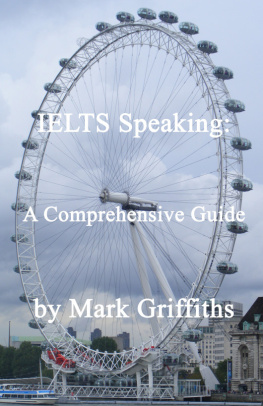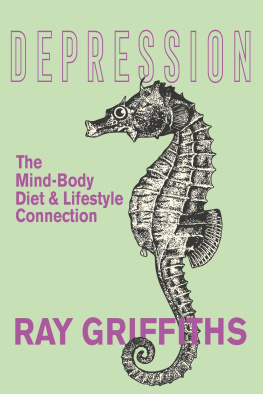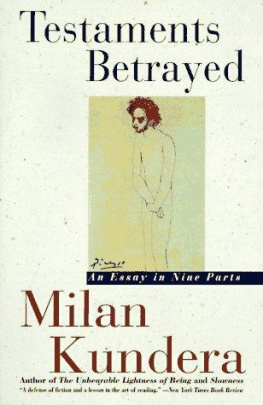THE SUM OF HER PARTS

SERIES EDITOR
Nicole Walker
SERIES ADVISORY BOARD
Dan Gunn
Pam Houston
Phillip Lopate
Dinty W. Moore
Lia Purpura
Patricia Smith
THE SUM OF HER PARTS
Essays
SIN GRIFFITHS
The University of Georgia Press Athens
Published by the University of Georgia Press
Athens, Georgia 30602
www.ugapress.org
2022 by Sin Griffiths
All rights reserved
Designed by Erin Kirk
Set in Arno Pro
Printed and bound by Sheridan Books
The paper in this book meets the guidelines for permanence and durability of the Committee on Production Guidelines for Book Longevity of the Council on Library Resources.
Most University of Georgia Press titles are available from popular e-book vendors.
Printed in the United States of America
26 25 24 23 22 P 5 4 3 2 1
Library of Congress Control Number: 2022930664
ISBN: 9780820362335 (paperback)
ISBN: 9780820362342 (ebook)
For my mother
and for my mothers
For my sister
and for my sisters
Contents
THE SUM OF HER PARTS
X = component of a thing
X + y = a celebration
= a group waiting for seats at a table
X + ner = half of a team (as in business, romance, tennis) playing a X = inhabiting a role
X + ial = not the whole
= biased
= attracted (to)
Xs is Xs = slogan implicating inferior nuggets
doing my X = doing whats expected
just doing my X = doing far more than expected
X + ido = game, Spanish
X + ing = sweet sorrow
de + X = leave
de + X + ed = dead, gone
dear(ly) de + X + ed = never gone
X = the skulls dividing line, as hair defines its hemispheres
im + X = to deliver (wisdom)
+ im + X + ial = without opinions or bias, an inhuman state
a whole, or something greater?
The guy calls on a Monday, leaving a message on the office voicemail, but it is his minutes-later follow-up email I receive first. He introduces himself as a graduate student thinking about taking my summer fiction writing class. The only problem? He thinks my absence policy is too strict. He has questions about it.
My policy outlines the penalty students will incur on their participation scores if they miss class, suggesting that they drop the course if they are going to miss excessive sessions. Its a policy Ive arrived at after fifteen years of teaching college-level classes, a policy that makes it clear that students must be in class. I expect them to take their education as seriously as I do.
He calls it inhuman in his phone message, repeating that word when he flags me down after my night class. As we talk, he tells me that he had another professor with a strict absence policy when he was an undergrad. He missed a week for medical reasons, and it devastated his course grade. She failed me, he says, and I was, like, Well, youre a cunt.
Cunt. The word lashes out.
No, thats not accurate. Thats only how I feel it. From his stance, it is more casual. Something to be slung around, dropped, forgotten.
To clarify, I know that he isnt calling me a cunt, though I have the potential to be one. I understand, too, that he did not use this word directly to this nameless professor. He is talking about his feelings, representing them in words. This is his gut-level thought response. Still, I am speechless.
Speechless and already questioning my own reaction. The kid seems well spoken and intelligent. And not only well spoken but soft spoken. His mouth wraps the word cunt in bunny fur. He laughs and smiles, almost but not quite blushing, his face boyish and jovial. You have to ignore curse words from me, he says. Theyre just part of who I am. Later he adds, Im queer. We use that word in my community.
I have so many feelings. I comb through them.
The one Im surest of is this: The context in which he has used the word is hateful. He is not reclaiming a word made ugly by anger. He applies cunt disparagingly to a female professor, throwing her gender at her like a grenade. And in this, his first-ever interaction with me, he includes me in that grenades collateral damage.
I think, too, that he has a clear misunderstanding of how words work if he believes that he can single-handedly define their meaning, as if they hold no communally determined denotations or connotations. As if they have no history.
Hes also ignoring our current context. We are not two drag queens trading banter. I am a professor, not a friend. In social terms, I am closer to the woman he described than I am to him. This is a professional interaction. I am a person who, if he takes my course, will grade his work and write letters of reference and support his careeror not.
Finally, he ignores what is likely to be my own personal context. Hugh Rawsons Dictionary of Invective calls cunt the most heavily tabooed of all English words. The Oxford English Dictionary agrees, saying, In spite of its widespread use over a long period and in many sections of society, there remains a strong taboo concerning use of this word. It adds that its public use has often been prohibited or restricted, notably in news and broadcast media and Until relatively recently it appeared only rarely in print. Even without such sources, this student can assume that I have seen and heard the word used to deride women. Thats what context does: it creates a set of shared assumptions by which we can navigate our word choices. Yes, Ive also heard cunt used playfully, and I know how to recognize the difference, but that is something less safe to assume, and his tone was not playful.
Even as I sort through all these arguments, knowing I could articulate at least some of them, they go unspoken because (1) it is 8:30 at night, Ive been on campus for twelve hours, and I want to go home, and (2) I dont want to look like a prude.
Prude: a word invoked to goad women into performing actions they find shameful and, further, to prevent them from speaking out against ideas and behaviors they find offensive. Prude: an electric cattle prod of a word, a word designed to put us into the old binaries of virgin/whore, good/evil, nerd/cool, Sandra Dee/Rizzo, navet/knowledge.
And what do I do with his announcement that he is queer, or the assumption that this should allow him to use cunt casually? Throughout my career, I have prevented straight students from silencing the stories of their gay and lesbian classmates. Some students have called lgbtq-themed work inappropriate for class, but I insist otherwise. More than once, students have refused to read their peers work, as if refusal to read were a moral stance, but writers do not have the right to determine each others subject matter. Just as my conservative students have the right to express their political and religious beliefs, so my lgbtq students should write toward their convictions, giving voice to experiences others would prefer closeted and unspoken. Defending free speech is fundamental to my beliefs.
If I silence this students word choice, am I infringing on his rights or merely defending my own? No, this is not a story written for class. Its his life story, related here in a campus hallway. The distinction is, in many ways, academic.















